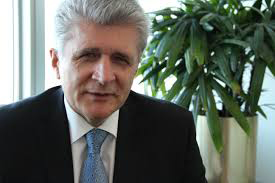A two-day meeting between CARICOM and the United Nations opened yesterday and it is expected to focus on areas of economic and sustainable development for CARICOM, including debt sustainability and financing for development, which will touch on the issues of blacklisting and the withdrawal of correspondent banking relations, CARICOM Secretary General Irwin LaRocque has said.
Speaking at the Tenth General Meeting of the Caribbean Community, its Associated Institutions and the United Nations (UN) System, LaRocque said discussion will also centre on cooperation on other important issues, such as crime and security; Small Island Developing States (SIDS) and the 2030 Development Agenda; youth and human resource development; food security; agriculture and fisheries; and non-communicable diseases, HIV/AIDS and pandemics.
“The issue of human mobility brought about by the increasing flows of migrants into Member States of the Community will be discussed also, for the first time in this forum, as well as post-disaster displacement,” he told the many that gathered at the Secretariat’s Liliendaal Headquarters for the meeting.
LaRocque voiced his wish that the new decade of partnership would become one of innovation in addressing the specific challenges and vulnerabilities of SIDS. And he hoped that the Tenth General Meeting will be a springboard for the convergence that they seek in addressing global sustainable development issues and as a testament to the longevity of their partnership and their commitment to leaving no one behind.
Underscoring the importance of the partnership to CARICOM, the Secretary-General said it is one that the Member States of CARICOM rely on and one that has become more effective in their coordination and implementation, and one that will continue to evolve in response to changing needs and priorities.
“As small states, there is an energetic push for the realisation of the regional integration movement and its objectives. This is in support of a stronger and more resilient Community, and in response to the weakening of multilateralism in the conduct of international relations, and an international system that is increasingly changing and challenging the sovereignty of small states,” LaRocque said.
The first meeting of the partnership was held in 1997 in New York and since then LaRocque said dialogue and cooperation has progressed steadily. The two, he said, are cooperating in more numerous and diverse areas in promotion of the growth and development of the Community and in support of the improved welfare of its people.
At the Ninth General Meeting in 2017 in New York, the two sides sought to further strengthen their existing partnership and to maximise progress in priority areas of cooperation, amidst an international background of increasing uncertainty and unpredictability and in coordination with the UN’s newly operational Multi-Country Sustainable Development Framework (MSDF).
Two months later, he said that cooperation was called urgently into action in very extreme circumstances, as several Member States of the Community suffered unprecedented destruction as a result of hurricanes Irma and Maria.
Two years later, as another hurricane season commences, “the threat of climate change hangs heavy in our consciousness,” he noted.
“As the severity of Hurricanes Irma and Maria demonstrated, there is need for continued advocacy for urgent and enhanced climate action to limit global temperature rise to 1.5°C above pre-industrial levels, since global warming poses an existential threat to our Community,” he said.
Meanwhile, Miroslav Jenča, Assistant Secretary-General for Europe, Central Asia and the Americas of the United Nations, who heads the UN team at the meeting, said that the two organisations share many priorities, with the fight against climate change being a particularly prominent one.
“We are now only a few weeks ahead of the Climate Action Summit. Caribbean counties are leading the way on climate action, adaptation and mitigation and the international community should support these efforts by providing the necessary public and private resources,” he said.
He said the timing of the present meeting is excellent as it comes in a year that will see important global review processes of direct significance to the Caribbean and besides the Climate Summit, the High-level Political Forum review of the 2030 Agenda; the Addis Ababa Action Plan on financing for sustainable development; and the mid-term review of the SAMOA Pathway for SIDS.






